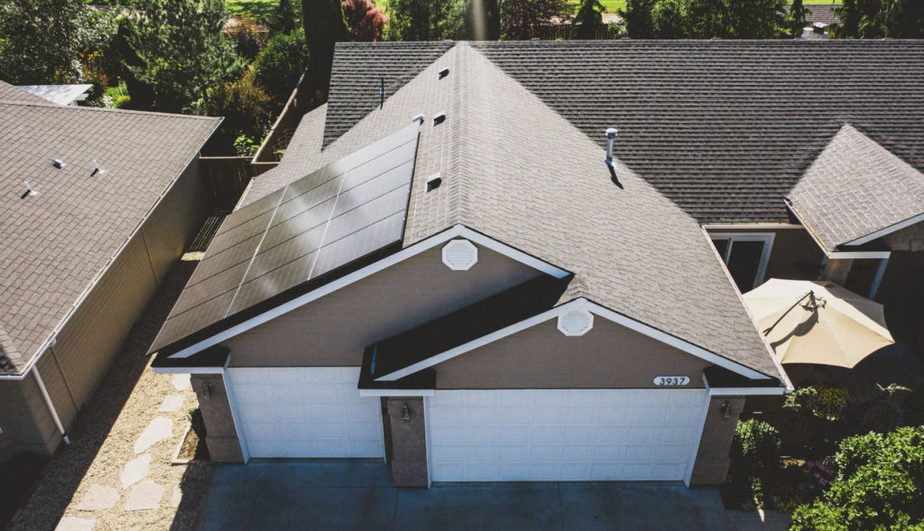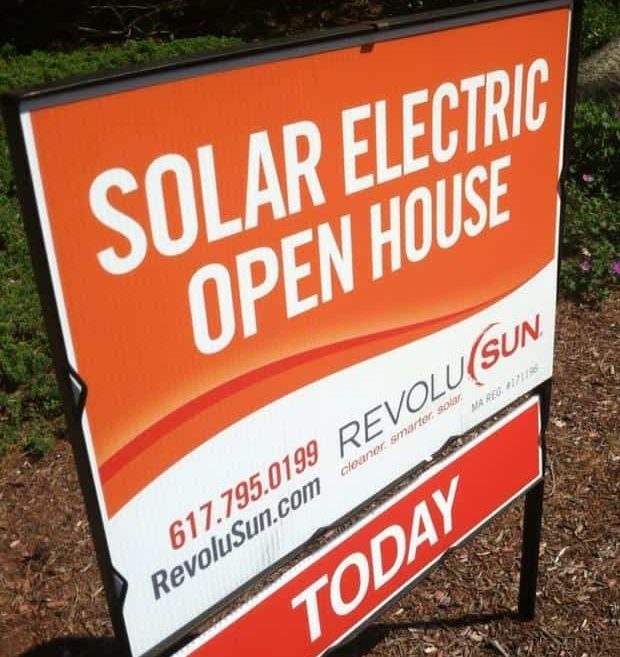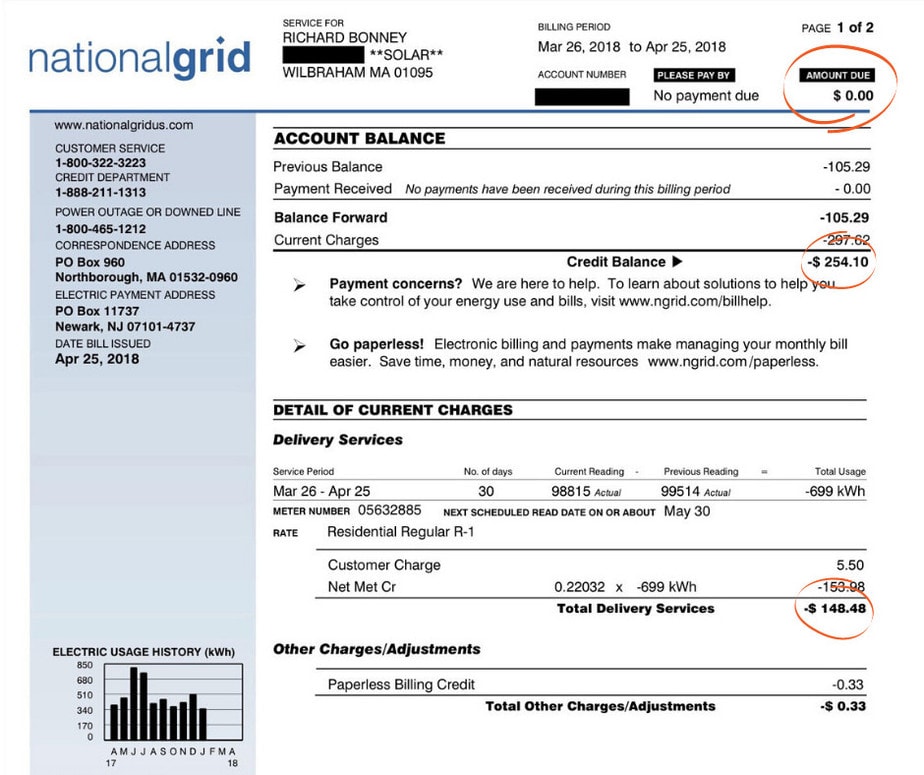 There’s growing evidence that adding solar panels to your home increases your property value. According to Zillow, homes with solar sell for about 4% more than homes without solar. On top of that, they sell faster than their non-solar counterparts. A Berkeley Labs study reported similar statistics, finding that homes with solar systems sold, on average, for $15,000 more than homes without. This pattern holds especially true for Massachusetts homeowners selling their property. Recently, the Department of Energy Sunshot Initiative partnered with realty marketplace Redfin and found that the median sale price increase for Worcester, MA homes with solar was $45,000.
There’s growing evidence that adding solar panels to your home increases your property value. According to Zillow, homes with solar sell for about 4% more than homes without solar. On top of that, they sell faster than their non-solar counterparts. A Berkeley Labs study reported similar statistics, finding that homes with solar systems sold, on average, for $15,000 more than homes without. This pattern holds especially true for Massachusetts homeowners selling their property. Recently, the Department of Energy Sunshot Initiative partnered with realty marketplace Redfin and found that the median sale price increase for Worcester, MA homes with solar was $45,000.
Since solar has such a tremendous impact on property value, there are a number of factors you should consider if you’re looking to buy or sell a house with solar panels. Here are some tips for selling and buying homes with existing solar systems.
Tips for Selling a Home with Solar
When you’re selling a home with solar panels, there are simple steps you can take to ensure that potential buyers understand the value that your system adds to the home.
1. Mention Your Solar System in Your Listing
A majority of buyers keep an eye out for energy-efficient features when looking at properties, so it’s important to include your solar system in your home’s listing. Underscoring your solar panels in the real estate listing could attract more visitors for open houses and help those potential buyers understand the value of the system. In addition to system size and energy production, you’ll want to highlight the benefits homeowners can expect by generating their own electricity. Showcase how you simultaneously save money on electric bills, earn money through incentives, and reduce your carbon footprint.
2. Sort Out Your Financing

When you add solar panels to your home, the increase in resale value depends on who owns the solar system. If you purchase your solar system outright, then you own that system, and it’s considered “real property.” This means that appraisers can incorporate it as part of your home’s value. Similarly, if you purchased your system with a loan and have since paid it off, then you own the system, and it can count toward your home’s appraisal.
If you purchased your solar system through a loan, and the loan hasn’t been paid off, then you’re responsible for paying the remainder of the loan when you move. If you want to leave your system, then you can factor in the cost of the solar loan payments when calculating the selling price for your property. Alternatively, you’re able to take your solar system with you and install it at your new house.
Furthermore, if you’re in National Grid, Eversource, or Unitil territory and purchased your system outright or through a loan, then you’ll have to decide whether to keep earning money through the SREC Program or the current Solar Massachusetts Renewable Target (SMART) Program, or transfer future incentives to the new homeowner. If you choose to keep incentives in your name, the new homeowner still benefits from lower electric bills. However, transferring the SMART Program to the buyer increases the resale value of the home, so it’s an option you should consider. SRECTrade, the entity in charge of solar renewable energy credits, can help you transfer ownership of incentives if you wish to take this route. They do all the heavy lifting, but you should contact them to initiate this.
Last, if you leased your system with a traditional leasing program or Power Purchase Agreement (PPA), you can’t factor your system into the appraised value of your property because you don’t own it. Instead, you’re paying a third party to use the electricity that the system generates. The terms for this agreement vary depending on the solar provider or manufacturer, so, carefully review the contract if you’re buying or selling a home with a leased or PPA-tied system. The new homebuyer has the option to continue the solar lease, but if they do not decide to take up the lease, the lease remains entirely the original homeowner’s responsibility.
3. Gather Important Documentation
Buyers looking at homes with solar will want to know how the panels will perform over time, so it’s helpful to gather relevant documentation to show them. Since picking the right panels can impact how long your solar panels last, you should let your buyers look at any paperwork about your system and the materials used. Similarly, a good warranty can make or break a customer’s investment, so you should share your warranty with your homebuyer. Last, you’ll want to let potential buyers review your electric bills, so they can see how much money your solar system saves you. This is what adds tremendous value to your home, so it’s critical that you highlight your savings.

Tips for Buying a Home with Solar
If you’re buying a home with solar panels, you should understand the specifics of the system. Expect to save big on electricity bills to come, but it’s important to review the system’s financing, the homeowner’s energy bills, and the panels’ original installer before purchasing the home.
1. Ask How the Panels Are Financed
As mentioned above, how the solar system is financed influences how much value the system adds to the home. If the panels were purchased in full, then you become the owner of the system when you purchase the home. If the panels were bought through a loan, then the seller must pay off the loan’s balance when they move, so they often increase the selling price for the property to make up for this difference. That being said, once you purchase the home, you’re the owner of the system. Last, if a homeowner financed their system through a lease or PPA, then they don’t own the system — they’re paying a third party to use the clean energy the system produces. You’d do the same once you bought the property, so it’s important to review the terms of this agreement.
2. Look At the Seller’s Electric Bills
Reviewing the seller’s current energy bills helps you understand the amount of savings from avoided electricity costs you should expect with the home’s solar system. This will allow you to determine if the system will meet your energy needs and if solar incentives like net metering are available in the community. Additionally, you should ask the current homeowner if they are keeping solar incentives from or transferring the ownership of these incentives to you.
3. Check With the Solar Contractor
The solar installer who built the system is often responsible for its maintenance over its warrantied life. You’ll be depending on them when you encounter any issues with your system, so it’s important to familiarize yourself with the company. That being said, you’re able to work with a different company if you’re not happy with the original installer. At Solaris Renewables, we’re able to service systems even if we didn’t build them. Additionally, our warranties include parts, labor, and shipping of your entire solar system for 25 years. However, warranties vary from installer to installer, so it’s crucial to figure out what’s covered and what isn’t.
Solar Panels Add Value To Your Home
Whether or not solar panels impact home value is one of the most frequently asked questions we get asked. Most people assume that it’s a complicated process, but as long as you stay on top of a few things, selling or buying a home with solar can be seamless. Plus, solar panels provide incredible benefits for both the homebuyer and seller — the buyer can go in confidently knowing they don’t have to pay steep electric bills anymore, and the seller can list their home for higher. It’s a win for everyone involved.
Supporting Your Green Home
In addition to installing solar, we’re available to service and add solar panels to systems that we did not originally build. Chat with us to see how we can enhance your home’s value.
